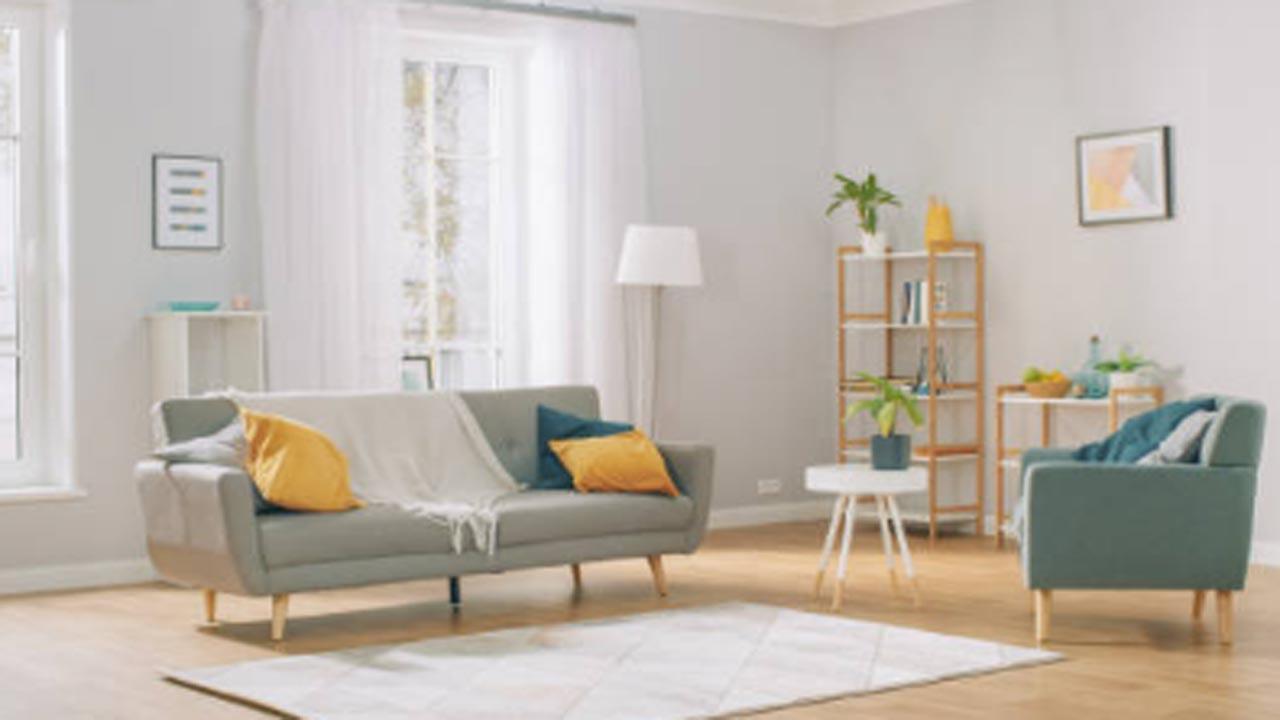The aesthetics and ambience of the entire house can be significantly influenced by the design and decor of the living room. The furniture, decor pieces, and colour palette all establish the ideal ambience

Image for representational purpose only. Photo Courtesy: istock
Redecorating your house often is a fun activity and one that can bring a lot of joy to people. While it is important to pay attention to the bedroom, it is also necessary to make sure that your living room looks good because that is where people spend most of their time to relax, socialise and create memories.
ADVERTISEMENT
Furthermore, the aesthetics and ambience of the entire house can be significantly influenced by the design and decor of the living room. The furniture, decor pieces, and colour palette all establish the ideal ambience. A well-planned living room can increase the comfort and cosiness of the entire house, while a poorly designed one can make the house look unwelcoming.
No one can deny that any well-designed room's inherent beauty is enough to prove that interior design is a form of art. Yet, a few things need to be solved while deciding on the interiors. Here are some trends to avoid while designing your living room suggested by Pratibha Batra, founder and ace designer at Maison Interiors.
Selecting inappropriate sized furniture
Naturally, furniture significantly impacts how your living space looks and feels. But putting away the appearance and feel, the size should be your top priority. After all, furniture that is too small will draw attention to space and give the impression that your living room is vacant, while furniture that is too huge will make the area feel crowded.
Not just the furniture but also the size of your carpeting or drapes may have a big impact on how a space is perceived as being. As a result, to achieve the ideal balance, measure the space and your furniture.
Furniture fixed to the wall
A room feels airy and light when spaces separate furniture and walls. The room can breathe and appears larger with a good plan that emphasizes the seating area and provides walkways around it. If your living room is small, try creating a space separation between the sofa and the wall with a moving shelf or console table.
One source of light
Your living room should ideally be bathed in sunlight. But what occurs if you're not as fortunate or if night falls? Having single light in your living room is one of the most common errors in living room decor. To undo it, arrange several lights to create a layered, homogenous appearance. In order to make a dramatic visual treat, include overhead, floor, table lamps, spotlights, pendant lights, etc.
The wrong scale of art
Art may be intimidating and very stunning when it is hanging. Regrettably, this is also the reason why errors are often obvious. Choosing the wrong size is the first error several interior designers make. Don't let size frighten you. Almost often, bigger is better. While a large piece of art might become the room's centre point, small artwork can look foolish. If you wish to add more than one component, play around with the scale and placement until you find one that appears balanced. Keep in mind that eye level generally seems to be the most natural.
Metal and layers
People usually enjoy metallic details, but using too much metal in your interiors is not suggested. A chrome floor lamp can seem stylish, but it looks terrible next to a chrome chandelier, chrome coffee table legs, and other accessories. Unless it is warm, like brass, too much metal can detract from a room's warmth and make it sterile and cold. However, metals mixed with natural and organic materials like lines and jute can soften the rigid impression.
Also Read: Make your home office work for you with these tips from interior designers
This story has been sourced from a third party syndicated feed, agencies. Mid-day accepts no responsibility or liability for its dependability, trustworthiness, reliability and data of the text. Mid-day management/mid-day.com reserves the sole right to alter, delete or remove (without notice) the content in its absolute discretion for any reason whatsoever
 Subscribe today by clicking the link and stay updated with the latest news!" Click here!
Subscribe today by clicking the link and stay updated with the latest news!" Click here!







